After last year’s online VASCERN Days, it was with great pleasure that we were able to welcome our members and invited stakeholders to VASCERN Days 2021 once again in Paris this year! This was one of the first face-to-face meetings for many of our participants since the COVID-19 pandemic started and there was definitely a feeling of joy and excitement to meet together again in-person after such a long time.
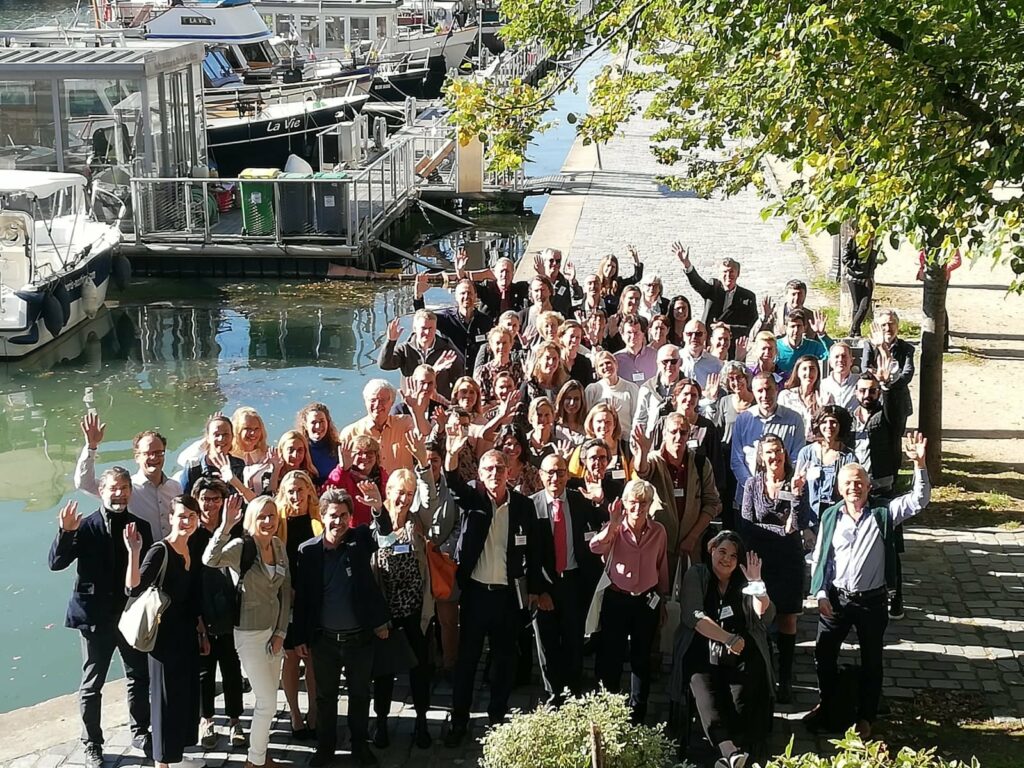
Over 90 participants attended this 3-day event including 50 Healthcare Provider (HCP) representatives, 4 representatives from our 7 Affiliated Partner centers and 18 European Patient Advocate Group (ePAG) patient advocates, as well as numerous invited stakeholders representing DG SANTE (European Commission), FAVA-Multi (The French Network for Rare Vascular Diseases – who were kind enough to help us with the onsite organisation), Eurordis, members of our VASCERN Registries Project team, EJP-RD, Fondation AP-HP, AP-HP Bichat Hospital and Orphanet. In addition, as we offered a hybrid option, 24 participants who were unable to come to Paris could still connect and join us virtually.
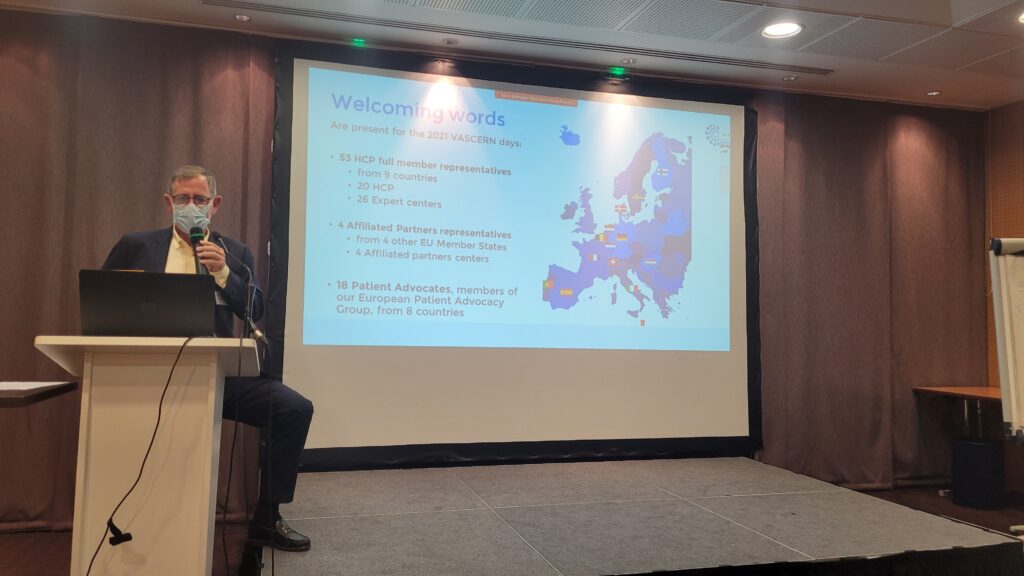
The first day started with the annual Board meeting where VASCERN Coordinator Professor Guillaume Jondeau welcomed everyone and presented VASCERN Project Manager, Julie Hallac, who gave an overview of VASCERN’s EU co-funding projects. This was followed by an update on VASCERN’s communication activities (including a benchmark of how we rank against the other 24 ERNs in terms of our social media channels) by Natasha Barr (VASCERN Project officer and Communications Manager).
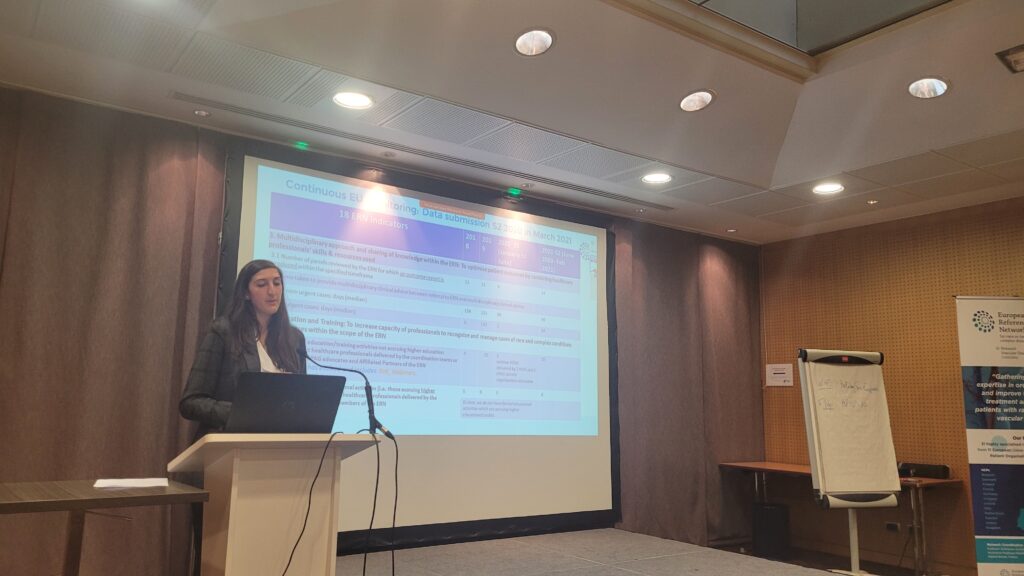
VASCERN’s developments were also presented and included the plans for our new eLearning Moodle platform, the work on creating sub-working group guidelines and a consent form that is close to being finalised. IT developments were also given by Ibrahim Donmez (VASCERN’s IT Helpdesk & End User Support Specialist). Finally, the latest news from the interERN Working Groups (Monitoring, Guidelines, Pregnancy) were shared and ERICA project Manager, Mari Murel, joined the plenary via Webex in order to give an overview of the ERICA project.
After a quick coffee break the 5 Rare Disease Working Group (RDWG) Chairs, Prof. Sophie Dupuis-Girod (Hereditary Hemorrhagic Telangiectasia (HHT) WG), Prof. Julie De Backer (Heritable Thoracic Aortic Disease (HTAD) WG), Dr. Michael Frank (Medium-Sized Arteries (MSA)-WG), Dr. Robert Damstra (Pediatric and Primary Lymphedema (PPL) WG), and Prof. Miikka Vikkula (Vascular Anomalies (VASCA) WG), all gave their group’s progress updates on the implementation of VASCERN’s 15 Work Packages.
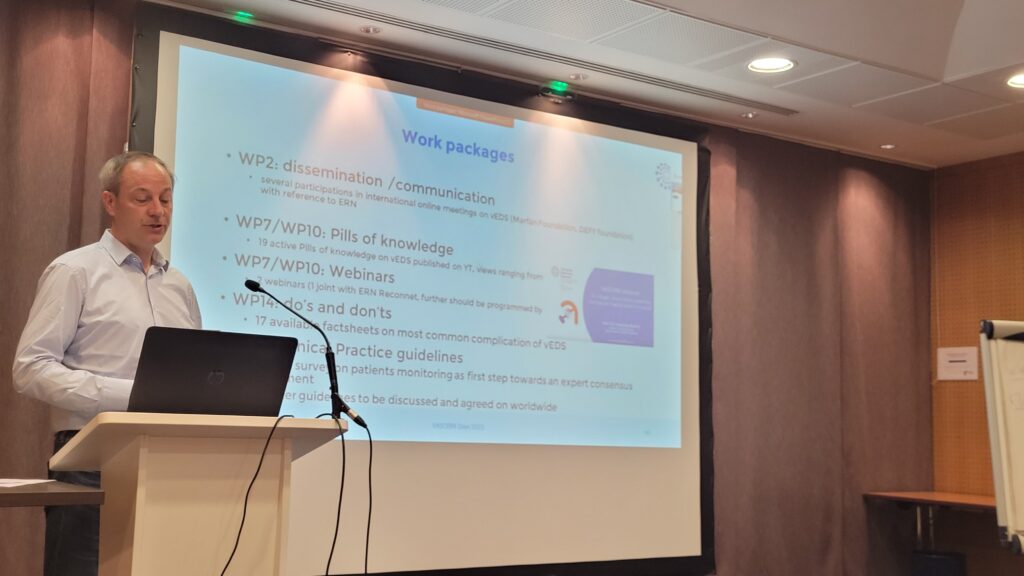
A lively question and answer session followed and the Board enthusiastically approved the VASCERN Terms of Reference. We were also lucky enough to be joined by Katarzyna Urbanczyk (via Webex) from DG Sante who informed us that the ERNs will have their funding renewed for another 5 years and that the 15 new HCP members (from the 2019 application) will officially join us on January 1st, 2022. Before lunch there was one last presentation by European Patient Advocacy Group (ePAG) Chair, Juergen Grunert, on the growth of the ePAG, their representation and work in VASCERN and the Eurordis task force groups, the issue of lacking patient advocates from Eastern European countries (and ideas on how to overcome this), their outputs and accomplishments over the past years (despite the challenges caused by COVID-19) and their goals for the coming year.
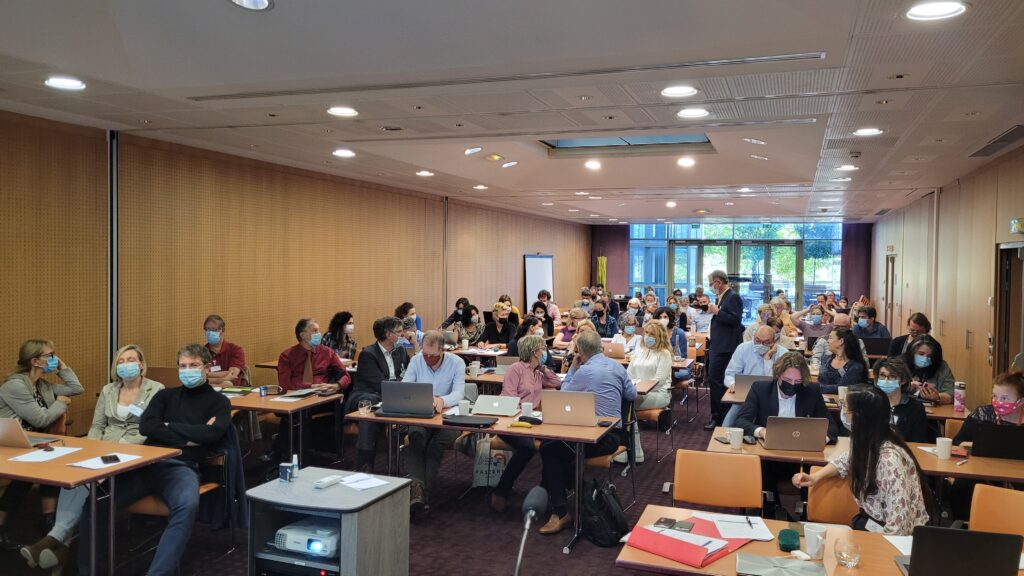
After lunch the group split up into their 5 RDWGs for their first of three parallel sessions. The healthcare providers of each group had time for dedicated Clinical Patient Management System (CPMS) case discussions while the patient advocates convened for the VASCERN ePAG meeting, joined by Ariane Weinman (Eurordis) and Mathilde Grégoire (FAVA-Multi Project Manager), who shared the implementation of a free helpline (Psy FAVA-Multi) where a rare vascular disease patient in France can talk to a psychologist.
In the evening participants were invited to a networking dinner at a local upscale crêperie where many ideas, memories, laughs and glasses of cider were shared!
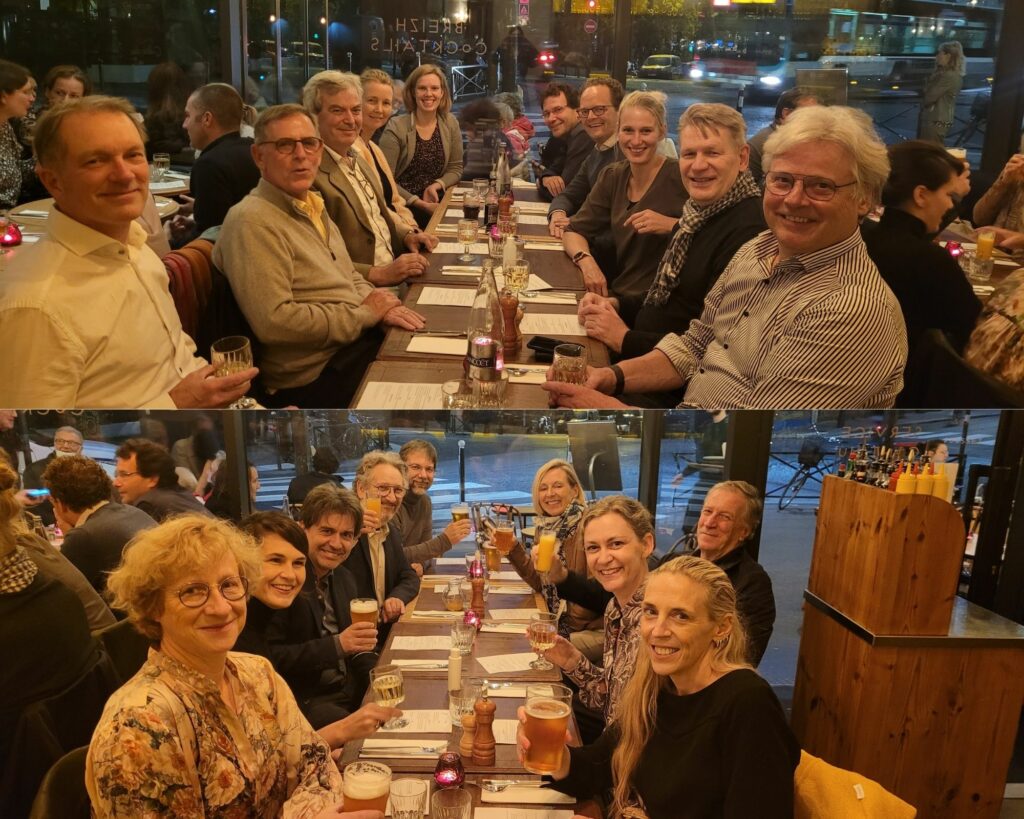
The next day started with a comprehensive presentation of the European Joint Programme on Rare Diseases (EJP-RD) by Senior Project Manager Yanis Mimouni, outlining what the EJP-RD can offer the ERNs in terms of funding, support, tools and activities. Then Professor Leo Schultze Kool, Registry WG Chair, informed the plenary of the progress of the VASCERN Registries EU Grant Project and the current timeline.
A very lively brainstorming session ensued covering many important topics that gave patient advocates and healthcare professionals the chance to have an open and honest discussion and give their thoughts. Topics included 1) the “patient journeys”, currently being developed by the patient organisations, that cover the patients’ entire life with their rare disease and how the patient pathways or the diagnostic and management pathways created by each of the RDWGs, can be evaluated and possibly integrated into these documents, 2) Managing the transition of patients from childhood to adulthood and the issues that go along with this transition, 3) How to encourage national networks and the importance of their creation for the integration of ERNs in the national healthcare systems, 4) How the ERNs will be evaluated and what criteria members thought to be important and 5) the psychological aspects of having a rare disease and the importance of having psychologists in the multidisciplinary teams.
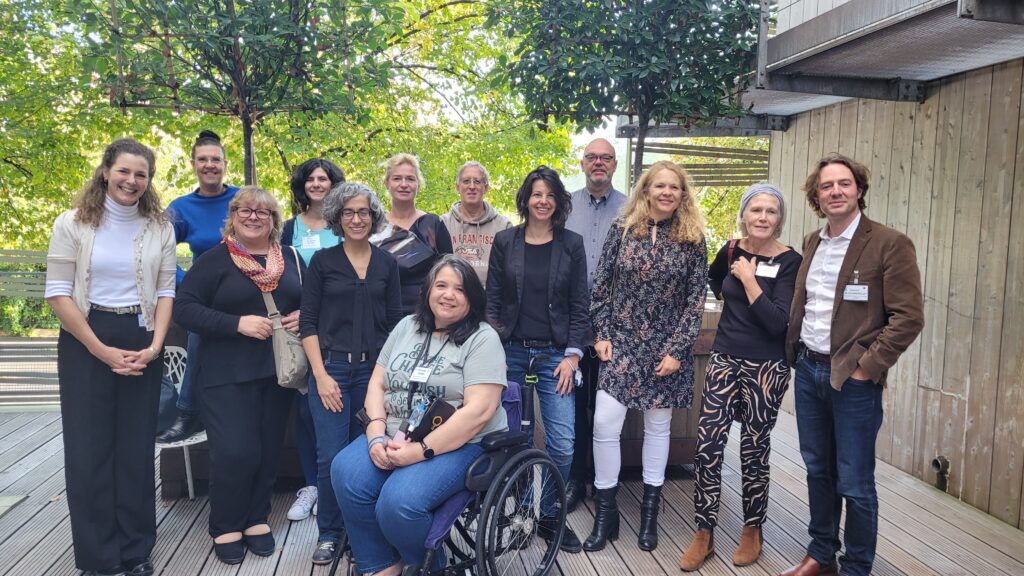
After lunch, the brainstorming session continued, with a presentation of the CMTC patient journey, while members of the VASCERN Pregnancy WG and the VASCERN Registry WG held their meetings at the same time. The rest of the afternoon was dedicated to the second round of parallel RDWG sessions.
On Saturday morning, the RDWG had a final session in order to finalise certain projects and plan for the future, with the PPL and VASCA WG’s and the MSA and HTAD WG’s also coming together for a joint session to discuss their shared issues.
Thanks to these three RDWG sessions over the three days, each of the RDWGs made headway on many projects. Some of the notable takeaways from the groups were the following:
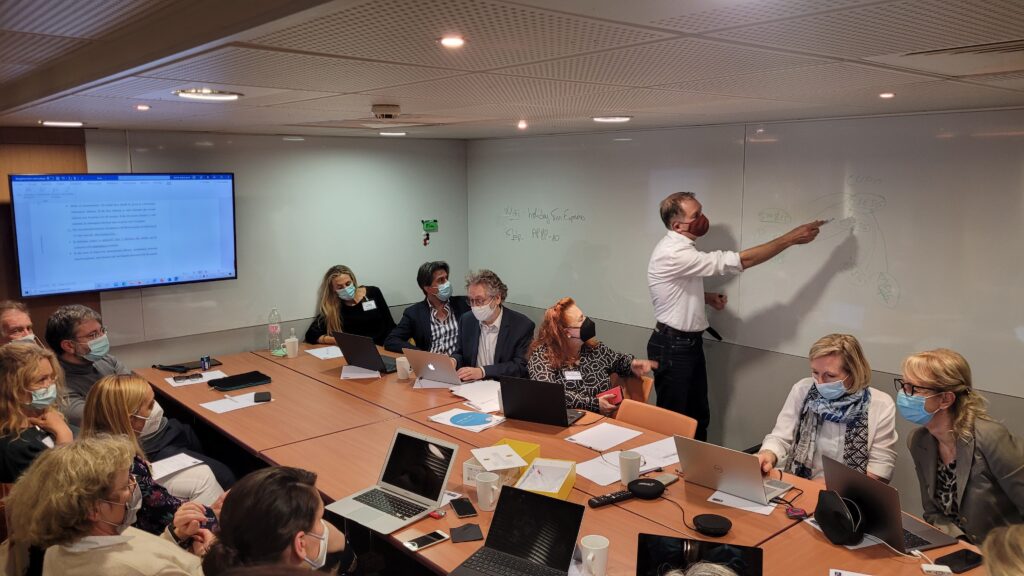
HHT WG
- Examined the HCP members’ experiences with COVID-19 (infection of HHT patients and impacts on health care systems) that had been collected.
- Decided to create an HHT and ENT webinar for patients that will take place in March 2022
- Proposed the creation of adolescent-friendly education materials for teenagers with HHT. A survey will be sent to evaluate the expectations/preferences of teenagers with HHT to better define the ideal media/topics.
- The two articles that will be submitted to the VASCERN special edition of the European Journal of Medical Genetics (EJMG) were presented and discussed
- 5 complex clinical cases were discussed using the CPMS (2 from Germany, 1 from Italy, 1 from Denmark and 1 from France).
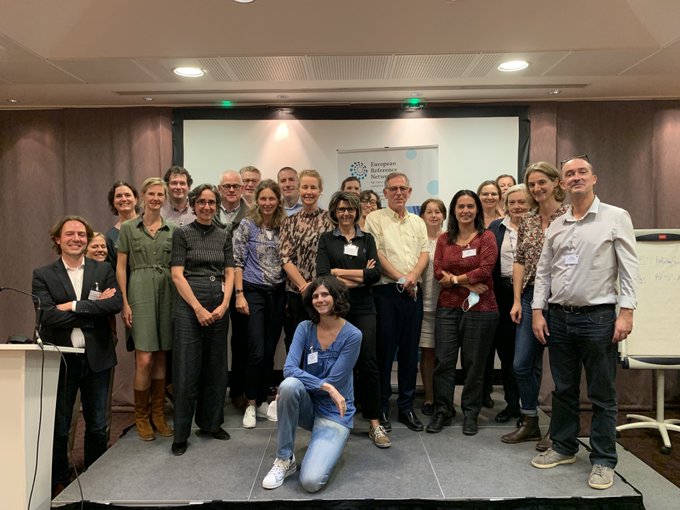
HTAD WG
- Discussed their 6 new Pills of Knowledge (PoK) Videos: upcoming PoK topics include “what is family screening for HTAD?” and “Type B aortic dissection”
- Went over the current issues and questions still to overcome while being updated on the progress of the HTAD Registry.
- Established minimum requirements and optimal protocol for CT and MRI to be usable for aortic root measurement through their aortic measurement study
- Decided on the development of a compendium of TAAD-gene specific tips and tricks as a compendium which can be used as a tool in daily practice.
MSA WG
- Update on the sequencing that was done for the vEDS genome-wide association study (GWA study) was given
- Will examine the Clinical Outcome Measures already defined by the HTAD WG to see if some could be applied to the MSA WG’s
- It was agreed to update the vEDS Dos and Don’ts factsheets
- Arterial monitoring survey and EJMG paper were discussed and draft of manuscript is advancing nicely. Two other articles will also be submitted to the EJMG by the MSA WG.
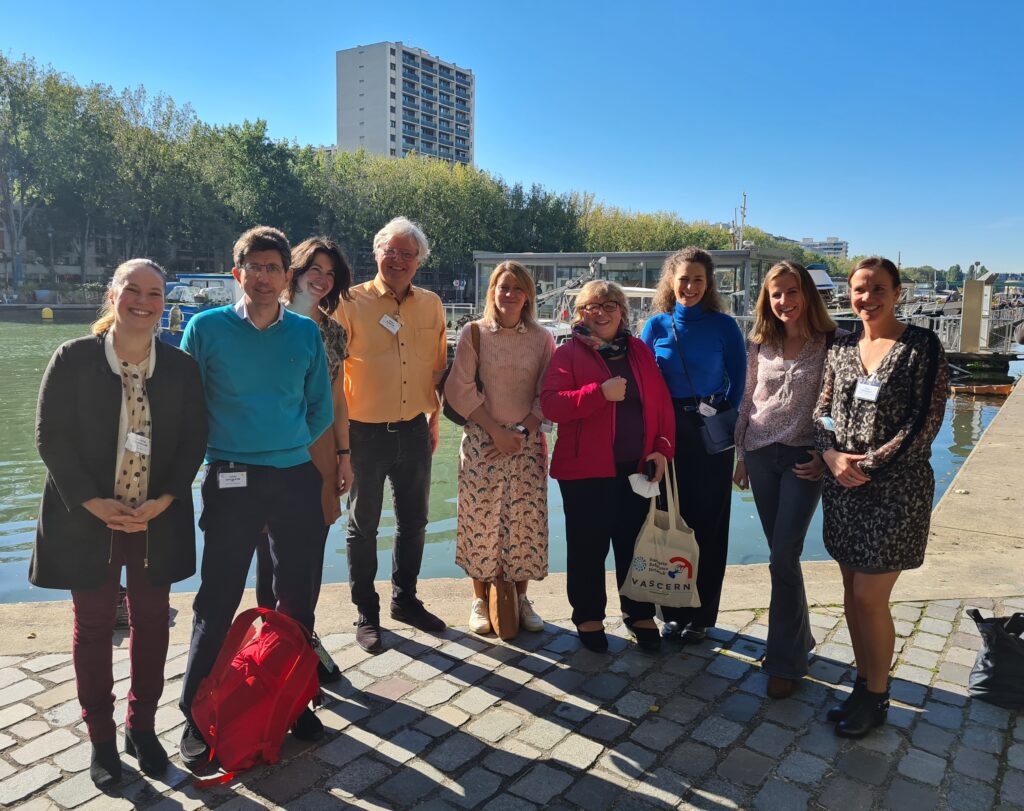
PPL WG
- Completed a flowchart for patients about cellulitis/ erysipelas with the main learning points from the VASCERN Webinar: Infections and Lymphedema that took place on March 24th, 2021.
- Webinar topics for 2022 were discussed including “Surgery for primary lymphedema”, “Genital edema” and “pregnancy and lymphedema”.
- Discussed the importance of having pediatricians as part of the multidisciplinary team in order to better facilitate the child to adult transition. For patients the aspect of transition from parents’
interference (babies and children) towards decision-making (in adolescence and adulthood) is an important aspect of transition. - 7 complex clinical cases were discussed in the CPMS
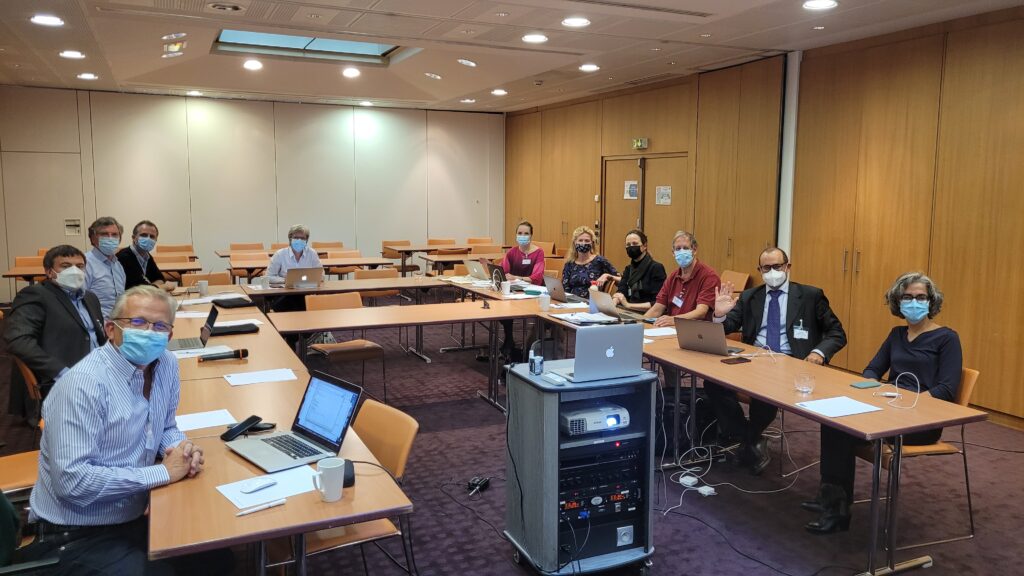
VASCA WG
- Set the dates for their next two webinars which will focus on their patient (diagnostic and management) pathways. The first one, Diagnostic and Management Pathway for Severe and/or Rare Infantile Hemangiomas, will take place on November 23rd, 2021 at 5PM (Register here) and the second, Diagnostic and Management Pathway for Lymphatic malformations, will take place on December 15th, 2021 at 5PM.
- Decided to generate a survey for pediatricians and the general practitioners to evaluate their knowledge of vascular anomalies
- Finalized one of their three manuscripts on their patient (diagnostic and management) pathways that will be submitted to the EJMG.
- The group brainstormed topics for the second edition of the VASCA Magazine,
- Initiated a new surgery and sirolimus study within the group
Professor Jondeau gave a quick wrap-up session after the RDWG sessions ended in the plenary before wishing everyone safe travels back home.
We thank everyone who attended, both in person and online, for making this edition of VASCERN Days such a great success. The weather was perfect over the three days and we are convinced that our wonderful participants were partly responsible for this, as they brought their light and amazing energy to Paris!
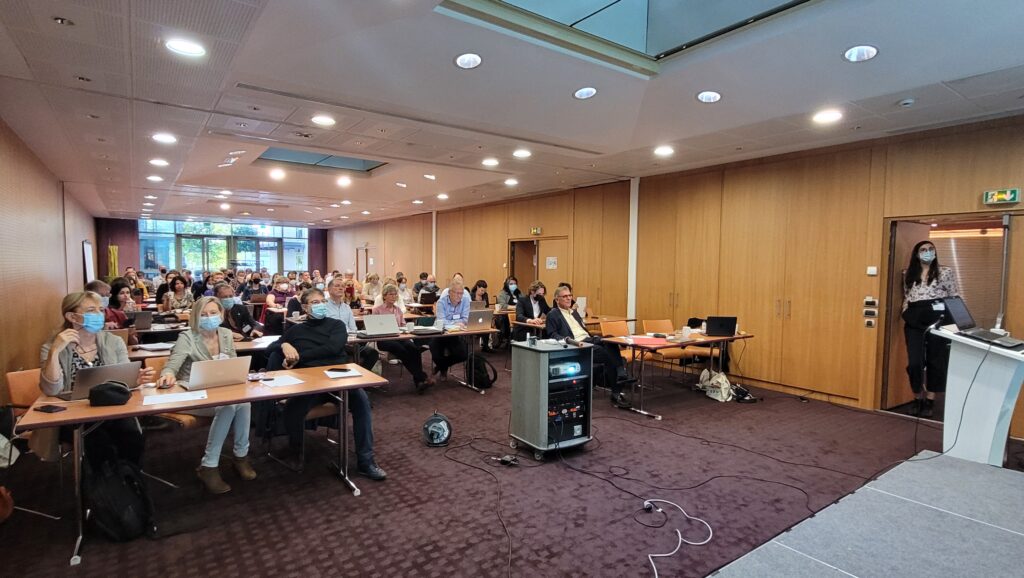
See the slides from the morning Board Meeting/Plenary session here
Programme here



